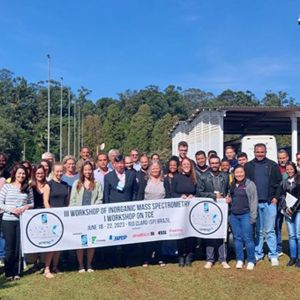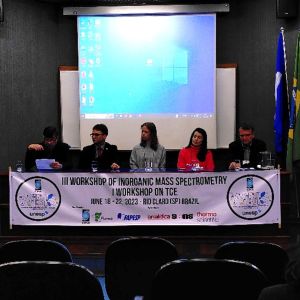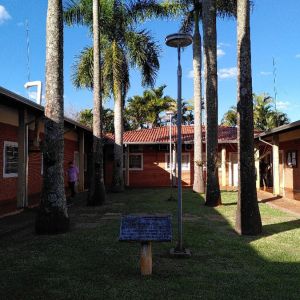TecEUS at WTCE I/WIMS III in Rio Claro, Brazil
From 18th to 22nd of June 2023, the First Workshop on Technology-Critical Elements (WTCE I) took place in Rio Claro, Brazil, embedded in the Third Workshop on Inorganic Mass Spectrometry (WIMS III). The workshop was hosted by the Center of Environmental Studies at the Universidade Estadual Paulista (UNESP) and provided a platform for interactions between scientists working on the quantitative analysis of TCEs. The event featured a lecture by Simone Trimmel (Montanuniversität Leoben), which focused on the analytical determination of technology-critical elements (TCEs) in plant samples as part of the TecEUS project.
Beyond her lecture, Simone was also involved in a round table discussion around the role of TCE analysis in Brazil and globally. She gave another concise presentation, this time focusing on the significance of TCEs within the European Union (EU). The discussion revolved on the varying perspectives and strategies employed in different regions of the world regarding research and management of critical resources.
One of the questions that arose during the discussion was whether the concept of TCEs is scientifically useful. This question prompted a rich exchange of ideas, highlighting the need for continued refinement and definition of TCEs within the scientific community. Furthermore, the discussion ventured into the realm of techniques in inorganic mass spectrometry, including single-particle analysis and neutron activation analysis. These techniques hold great promise for enhancing our understanding of TCEs and their distribution, opening up new avenues for research and analysis.
Apart from her contribution at the workshop, Simone stayed in Rio Claro for a total of two weeks with the research community of Amauri Antonio Menegário at the Atomic Spectrometry Laboratory of the Center of Environmental Studies (https://www2.unesp.br/portal#!/cea/laboratorios/espectrometria-atomica/). The research group in Rio Claro was very welcoming to Simone and facilitated a conducive environment for collaboration.
In summary, the mutually beneficial interactions underscored the importance of international cooperation in addressing complex environmental challenges. Simone’s travel to Brazil was supported financially by Erasmus+/Miro.


